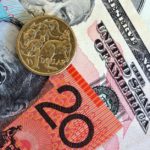 The yen trimmed daily losses against the US dollar on Monday, after a report by NATO showed that Russia had amassed a very sizable force on its Ukrainian border, boosting demand for assets with a haven appeal, such as the yen.
The yen trimmed daily losses against the US dollar on Monday, after a report by NATO showed that Russia had amassed a very sizable force on its Ukrainian border, boosting demand for assets with a haven appeal, such as the yen.
USD/JPY hit a session high at 102.64 at 08:00 GMT, after which the pair trimmed daily losses to trade little changed at 102.19 at 15:06 GMT. Support was likely to be received at March 21st low, 102.02, while resistance was to be met at March 19th high, 102.68.
Demand for safe-haven assets, including the yen, was heightened amid rising tension between the West and Russia ahead of diplomatic talks that are to determine the West’s reaction to Russia annexing Crimea.
On Friday, Russias President Vladimir Putin signed legislation needed to annex Crimea and its port of Sevastopol. This happened after Washington expanded its list of individuals to be sanctioned due to their close ties to President Vladimir Putin. Broadening of the sanctions to more than 20 prominent Russians marked an escalation of diplomatic pressure against President Putin for Moscow’s intervention in Ukraine.
Leaders of the G7 nations will hold talks on the sidelines of a nuclear summit in The Hague today regarding their response to Moscow’s latest actions. According to NATO, Russia had amassed a very sizable force on its Ukrainian border.
However, yen’s demand was pressured amid speculation the Bank of Japan will add to unprecedented stimulus to reduce the impact of a sales-tax increase next week.
BoJ’s Deputy Governor Kikuo Iwata said at a forum on monetary policy today, cited by Bloomberg, that deflation is the biggest problem for the Japanese economy and the main reason for the strength of the yen. Earlier this month, he said that the central bank is ready to adjust its monetary policy, should the 2% inflation target be deemed impossible to achieve.
The BoJ started the unprecedented stimulus program in April 2013, pledging it will achieve 2% inflation target around two years through aggressive asset purchase in an attempt to end 15 years of deflation.
Twelve of 34 economists in a Bloomberg survey, conducted on February 25 to March 4, predicted the BoJ will add to stimulus as early as next month, when the government raises the sales tax form 5% to 8%.
Meanwhile, greenbacks demand was pressured after a report by Markit Economics revealed its preliminary index of US manufacturing activity fell to 55.5 in March, down from 57.1 a month ago and compared to a smaller decline to 56.5, forecast by analysts. A value above the key level of 50.0 is indicative of expansion in the sector.
Elsewhere, EUR/USD touched a session low at 1.3763 at 10:19 GMT, after which consolidation followed at 1.3775, losing 0.15% for the day. Support was likely to be received at March 20th low, 1.3750, while resistance was to be met at March 20th, 1.3845.





